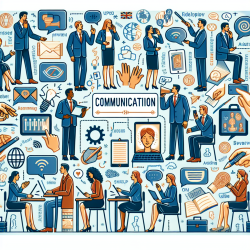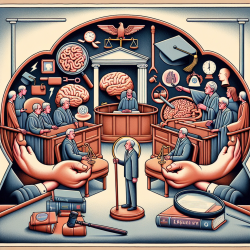As practitioners, it is crucial to understand the transition from pediatric to adult services for young people with cerebral palsy (CP). This transition is often fraught with challenges, both for the young individuals and the healthcare providers involved. The recent study by Ryan et al. (2023), titled "Transition to adult services experienced by young people with cerebral palsy: A cross-sectional study," provides valuable insights into the experiences of young people with CP and the practices of healthcare professionals. By implementing the outcomes of this research, practitioners can improve their skills and contribute to better transition experiences for their patients.
Key Findings from the Study
The study involved 75 young people with CP and 108 health professionals. It aimed to assess whether young people experienced, and health professionals provided, practices that could improve the transition from child to adult health services. Here are some key findings:
- 90% of young people reported appropriate parent involvement.
- 37% reported promotion of health self-efficacy.
- 36% had a named worker who supported the transition process.
- 36% received self-management support for physical health.
- 17% received self-management support for mental health.
- 24% received information about the transition process.
- 16% met the adult team before transitioning.
- 16% received life skills training.
- Post-discharge, only 10% reported that their general practitioner (GP) received a discharge letter.
In contrast, the percentage of health professionals reporting each practice was higher, indicating a discrepancy between what is provided and what is experienced by the young people:
- 73.2% reported promotion of health self-efficacy.
- 73.2% provided self-management support.
- 69% provided information about the transition process.
- 63% consulted the parent about parent involvement.
- 66% consulted the young person about parent involvement.
- 55% sent a discharge letter to a GP.
- 36% provided life skills training.
- 35% had a named worker.
- 30% facilitated meeting the adult team.
- 20% had a senior manager involved in the transition process.
Implications for Practice
Many young people with CP did not experience practices that could improve their transition to adult services. To address this gap, practitioners can focus on the following areas:
1. Enhance Communication and Information Sharing
Ensure that young people and their families receive comprehensive information about the transition process. This includes details about the adult team they will be working with and what to expect during the transition. Regular communication can alleviate anxiety and prepare them better for the change.
2. Promote Health Self-Efficacy
Encourage young people to take an active role in managing their health. This can be achieved through education and support programs that focus on self-management skills. Empowering them with knowledge and skills will boost their confidence and independence.
3. Involve a Named Worker
Assign a dedicated healthcare professional to support the young person throughout the transition process. This named worker can provide continuity of care, address concerns, and coordinate between pediatric and adult services.
4. Provide Life Skills Training
Offer training programs that equip young people with essential life skills. This includes managing finances, navigating healthcare systems, and developing social skills. Such training can ease their transition to adulthood and enhance their quality of life.
5. Ensure Post-Discharge Follow-Up
Implement protocols to ensure that general practitioners receive discharge letters and other relevant information post-transition. This ensures continuity of care and helps the adult healthcare team to provide appropriate support.
6. Involve Young People and Their Families in Service Design
Engage young people with CP and their families in the design, delivery, and evaluation of transition services. Their insights can help tailor services to meet their specific needs and preferences, leading to better outcomes.
Encouraging Further Research
While the study by Ryan et al. (2023) provides valuable insights, further research is needed to explore the long-term outcomes of different transition practices. Practitioners are encouraged to participate in and support research initiatives that aim to improve transition experiences for young people with CP. Collaboration between researchers, healthcare providers, and families is essential to develop evidence-based practices that can be widely implemented.
To read the original research paper, please follow this link: Transition to adult services experienced by young people with cerebral palsy: A cross-sectional study.










